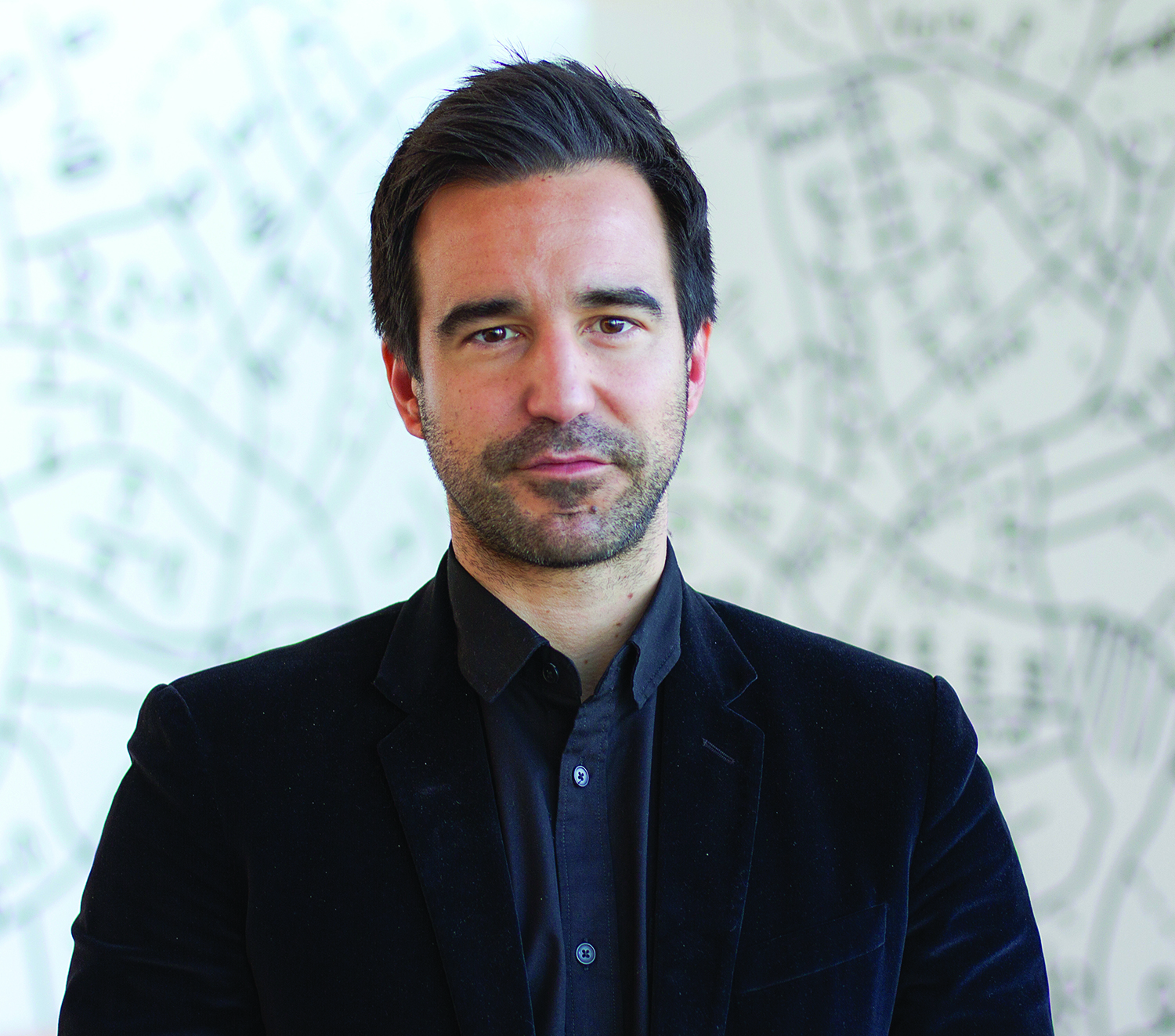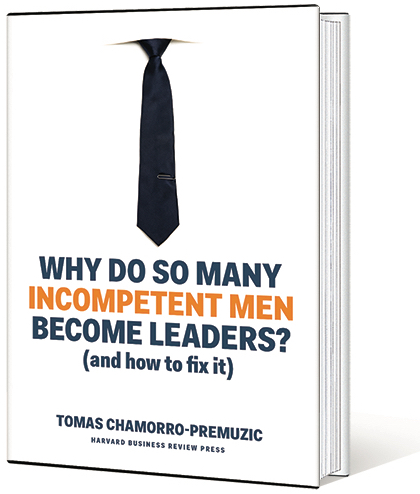
The workplace can be fraught with missed opportunity. Employers can make well intentioned but dumb hiring decisions. Employees can mimic behaviors that place them on a treadmill of mediocrity.
And in a world that sometimes rewards arrogance over humility and loudness over wisdom, competent people in both genders can be overlooked.
That’s the thesis of Why Do So Many Incompetent Men Become Leaders? (and How to Fix It), a new book by psychologist Tomas Chamorro-Premuzic. He’s chief talent scientist at Manpower Group and professor of business psychology at University College London and at Columbia University.
Chamorro-Premuzic talked about his work in helping organizations make better decisions on leader selection and development.
Rodger Dean Duncan: You suggest that men’s character flaws can actually help them emerge as leaders because the flaws may be disguised as attractive leadership qualities. What are some examples of that misinterpretation?

Tomas Chamorro-Premuzic: Three main examples concern confidence, charisma, and narcissism.
To be clear—there are some advantageous aspects to these traits, including narcissism, which has been linked to the ability to communicate magnetic visions and draw followers in. But at the same time, these traits relate to important character flaws that contribute to the leader’s derailment.
For instance, too much confidence will make leaders underestimate risks and lack awareness of their limitations, which leads to them being less coachable. Charisma will help leaders mask their incompetence, particularly at an age where the average person is only able to judge leaders for their style rather than substance. And narcissism stops leaders from caring about others and controlling their impulses.
So while we are often seduced by leaders who are confident, charismatic, and narcissistic, these attributes inhibit the leader’s performance in the long term.
Duncan: Why doesn’t that same kind of misinterpretation occur just as often with women?
Chamorro-Premuzic: First, women are generally less overconfident than men. When they are confident, we don’t celebrate them as much as men. We may even see them as pathologically ambitious or bulldozers. As for charisma, it’s an attribute that we mostly ascribe to men, not women. And studies show that the mere fact of being a leader makes someone seem more charismatic. Women are disadvantaged because they are not as often in leadership. Finally, though women have been catching up in recent decades, men are still more narcissistic—and psychopathic—than women.
In short, the misinterpretation is far less frequent because men over-index in those traits compared to women.
Duncan: There’s little doubt that, despite notable improvement, women’s paths to leadership positions are dotted with many barriers. But you say a bigger issue is the lack of career obstacles for incompetent men. What leads you to that conclusion?
Chamorro-Premuzic: (1)The fact that women need to be more qualified than men to be leaders; (2) the fact that women display more effective leadership styles (and less of the ineffective ones); and (3) the fact that women tend to have more of the soft skills that in today’s world are critical for effective leadership performance—empathy, emotional intelligence, integrity, and self-awareness.
We tend to ask “If women are such good leader,s why aren’t there more of them?” But the answer is actually that women are better leaders because we make it harder for them to become leaders when they are inept. The solution is not to lower our standards to boost female incompetence, but to raise them to boost male competence.
In any event a 50-50 ratio would also boost the standards of leadership. There are enough talented male leaders to make up 50 percent of the leadership ranks but not 75 percent!
Duncan: A core part of your message is that it’s not just gender bias that holds competent women back from leadership while incompetent men float to the top. The more fundamental issue, you say, is a disconnect between actual leadership talent and people’s assumptions about it. How did such a disconnect evolve?
Chamorro-Premuzic: It has to do with the growing complexity of leadership, which used to be about physical strength, courage and dexterity. This is why we still pick male leaders on the basis of their height, aggression, and strength. But when leadership depends on unobservable emotional and intellectual skills, we cannot observe leadership potential directly. And on top of that we still hold these archaic, unconscious archetypes that are based on the past physicality and aggression of leaders. Culture needs to catch up with evolution, and it will.
Duncan: What can decision-makers (those who hire leaders) do to avoid getting trapped in faulty assumptions about leadership?

Chamorro-Premuzic: Reduce the reliance on human subjectivity to make inferences of leadership. No more spontaneous or unconscious bias (including “culture fit” which is a blatant version of it), and above all get better at having objective metrics of job performance that can predict an employee’s future performance as a leader irrespective of gender, race, etc. In short, let the data do the talking.
If we focus on talent, we will change the gender ratio. If we focus on gender, we will not necessarily upgrade the talent, and gender-focused interventions can backfire because they are often interpreted as positive discrimination—as if women were not naturally able or willing to be great leaders, and as if the current systems were meritocratic.
Duncan: What can capable women do to avoid the mistake of mimicking maladaptive behaviors exhibited by (some) ambitious men?
Chamorro-Premuzic: It is not about them. I don’t blame them for mimicking incompetent men because that often leads to success. The responsibility is with those who vet and select leaders, because they are in charge of setting and implementing the rules of the game. Make leadership about expertise, competence, integrity, people skills, humility, and self-awareness, and you will not just see more competent women rise, but also more competent men! Too many men are currently dismissed for leadership jobs because they lack the traditional masculine traits that match our flawed leadership archetypes, but their “femininity” is a much-needed asset!
Duncan: Research shows that when leaders behave humbly, employees emulate that behavior by being more modest, admitting mistakes, sharing credit with others, and being more receptive to feedback. So why does it seem that so few leaders got the memo on humility?
Chamorro-Premuzic: Because leaders are rarely rewarded for how they impact on their employees. It’s crazy but true. They are generally rewarded for sucking up to their own bosses. In a normal world, feedback from their subordinates and followers would determine their promotion, but it is really just feedback from their bosses. Managing up pays off, leading is secondary.
Duncan: How do you distinguish potential from talent, and what can an organization do to help people transform their potential into talent without detouring only less productive paths?
Chamorro-Premuzic: Talent is being a star performer: having both extraordinary ability and exceptional achievements so that you are in the top 10 percent. Potential is making a bet on someone’s likelihood to be in that group in the future, to be a star performer in two, three, or five years’ time. So potential is talent before you can see it.
Messi is the most talented soccer player, which we all know. But the Barcelona scouts saw his potential at age 12, when nobody else was willing to be on it as strongly as they did. And on top of that they really developed him. This is the model we ought to follow with leaders, and we can start much earlier than now.
Duncan: Leadership success seems to be situational. For example, Winston Churchill was regarded as a brilliant leader during wartime when his stubbornness and paranoia were viewed as valuable traits. But those traits didn’t serve him well in peaceful times. How can an individual learn to identify personal traits and then calibrate them to be helpful in some circumstances while not serving as impediments in others?
Chamorro-Premuzic: It is somewhat contextual because you match style and expertise to the specific situation and problems. And yet science shows that there are also universal qualities that make leaders better in anysituation. Or can you think of a situation in which leaders will be better if they have less intelligence, integrity, people-skills, and self-awareness? No. So the soft skills that make up the DNA of leadership are universal.
Duncan: What are the key signals or attributes that organizations should focus on if they want to identify true leadership potential?
Chamorro-Premuzic: Technical expertise, general intelligence or learning ability, curiosity, self-awareness, empathy, emotional intelligence, and integrity. And they should measure them with reliable psychometric tests rather than improvised interviews.
Duncan: You’ve identified six data-driven lessons in leadership development. What are they?
Chamorro-Premuzic:
- Prediction trumps development—it’s easy to measure potential than to enhance it, so focus on people with the right qualities and don’t assume anybody can be a great leader.
- Good coaching works—but the likelihood of change will be exponentially higher if the leader has potential. (see 1)
- Don’t focus just on strengths—people get better by understanding their flaws and limitations. It’s insane that in mainstream HR circles we can’t use the word “weaknesses” but instead use the stupid euphemism of “opportunities.” People have strengths and weaknesses and it’s awareness of their weaknesses that holds the key to their improvement.
- Self-awareness is key—and it’s not about introspection but about other-awareness; As Maya Angelou said “when someone tells you who you are, believe them.” Seeking feedback from people who know you well and are able to be honest and critical will make leaders better.
- It’s not easy to go against your nature—when you can’t change, then change the context including your team, what you do, and who you work with. Talent also is personality in the right place.
- Coachability is part of potential—this is why we need leaders with curiosity, humility, and self-awareness… because they will know how to get better.

